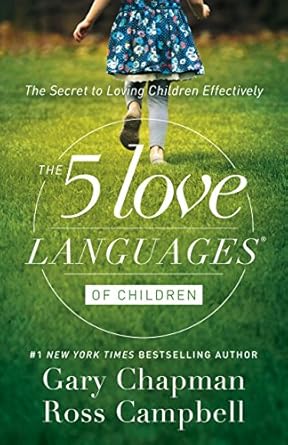The 5 Love Languages of Children

DOWNLOAD this article HERE
The need to feel loved is a basic human need. Child psychologists say that children have important emotional needs that must be met for them to be happy and healthy. These needs include love and affection as well as feeling like they belong and are wanted. When these needs are met, children can grow into responsible adults.
What makes you and your children feel loved? Think about it. Do you feel loved when you receive gifts, hear praise, get a hug, or when someone helps you, like carrying heavy bags or fixing something?
1. Physical Touch
Hugs and kisses are common ways to show love to your children. This love language is easy to use anytime, as you don’t need a special reason to give hugs or cuddles. You can show love through touch in many ways, like gentle pats on the back or playing games.
If your child’s main love language is touch, you can:
- Cuddle on the sofa and watch a movie together.
- Hug and kiss your child before they leave for school or at bedtime.
- Stroke their hair or rub their back when they’re upset.
- Give a high-five when they do something good.
- Read stories with your younger children on your lap.
- Comfort them when they’re sick, like wiping their face with a cloth.
2. Words of Affirmation
An old saying reminds us that our words have power: “The tongue has the power of life and death.” What we say to our children matters a lot, especially if they feel loved through words. Compliments and kind words can show your child you care and help them feel good about themselves.
If your child’s love language is words of affirmation, try these ideas:
- Leave a note with kind words in their lunchbox.
- Tell them you love them regularly, especially at bedtime.
- Send a text telling them how much they mean to you.
- Create a special nickname just for them.
- Praise them when they do well.
3. Quality Time
Quality time means spending focused, undistracted time together. This is important but can take more effort than giving compliments or hugs. Life can be busy, so you need to plan time to connect with your child. Quality time doesn’t have to be at special places; some of the best moments happen at home.
If your child’s love language is quality time, you can:
- Stop what you’re doing to make eye contact when they talk to you.
- Spend extra time reading stories or talking at bedtime.
- Help them with homework.
- Schedule special time with each child and make it important.
- Share silly jokes or laugh together.
- Go for family walks or play games.
- Surprise them with tickets to a fun event.
4. Gifts
The word "gift" comes from a Greek word that means a special or undeserved present. A real gift is not a payment for something done but a way to show love. If you give a gift only if your child cleans their room, that’s not a real gift but a reward or a bribe, which can confuse them.
Meaningful gifts can show love for those who feel loved through gifts. For your child to feel this love, they need to believe you care. To keep their love tank full, combine touch, words of affirmation, quality time, and acts of service. The best gifts are not about how big or expensive they are but about the love behind them. However, be careful not to give too many gifts instead of spending time with them.
If your child’s love language is gifts, you can:
- Choose gifts that match your child’s interests.
- Send a small package to them when you’re away.
- Make after-school snacks special by using a fun plate.
5. Acts of Service
Being a parent is all about helping others, and sometimes we forget that doing simple things every day shows our love. It can feel overwhelming, and you might think it’s too much work. But if you feel this way, your child might sense it too and feel less love from what you do.
Gary Chapman says that “loving service comes from wanting to help others and is a gift, not something we have to do.” He explains that when we do nice things for our kids, we help them grow up to be caring adults who will also want to help others. While we take care of our children, we also teach them how to take care of themselves and how to help others, which can take time and patience.
It's important to remember that helping can be tiring, too. If you ever feel like it’s too much, make sure to take breaks and take care of yourself as well.
If your child feels loved through acts of service, here are some great ways to show your love:
- Help them practice for their sports team.
- Sit down with them to go over homework so they know you care about their schoolwork.
- Surprise them with a special breakfast by getting up a little early.
- When they’re sick, make them feel better by setting up their favourite movie, reading them stories, or getting them some fun magazines.
- Teach them the importance of helping others by volunteering together at places like a local food bank.
- Fix their broken toys to show you care about their things.
- Start a special birthday meal tradition where you make their favourite food every year.
Learning your own love language and figuring out how to speak your child’s love language takes time. But if you put in the effort, you can create a strong bond and closeness with your child that you didn’t think was possible.
Book Recommendations

The 5 Love Languages of Children: The Secret to Loving Children Effectively
by Gary Chapman & Ross Campbell
ISBN: 978-0802412850
BUY on Amazon

The 5 Love Languages of Teenagers: The Secret to Increasing Joy and Trust with your Teen
by Gary Chapman
ISBN: 978-0802412843
BUY on Amazon
Next Step
Continue exploring our website for more helpful articles, tips and ideas.
DOWNLOAD this article HERE